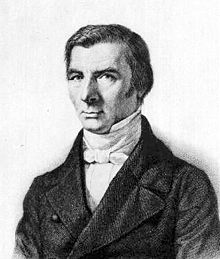There is no needy resin-collector on the heights of his sand dunes, no poor miner in the depths of his black pit, who will not receive higher wages and enjoy increased prosperity.
It needs but a little reflection, gentlemen, to be convinced that there is perhaps not one Frenchman, from the wealthy stockholder of the Anzin Company to the humblest vendor of matches, whose condition would not be improved by the success of our petition.
We anticipate your objections, gentlemen; but there is not a single one of them that you have not picked up from the musty old books of the advocates of free trade. We defy you to utter a word against us that will not instantly rebound against yourselves and the principle that guides your entire policy. Will you tell us that, though we may gain by this protection, France will not gain at all, because the consumer will bear the expense? We have our answer ready:
You no longer have the right to invoke the interests of the consumer. You have sacrificed him whenever you have found his interests opposed to those of the producer. You have done so in order to encourage industry and to increase employment. For the same reason you ought to do so this time too.
Indeed, you yourselves have anticipated this objection. When told that the consumer has a stake in the free entry of iron, coal, sesame, wheat, and textiles, “Yes,” you reply, “but the producer has a stake in their exclusion.” Very well! Surely if consumers have a stake in the admission of natural light, producers have a stake in its interdiction.
“But,” you may still say, “the producer and the consumer are one and the same person. If the manufacturer profits by protection, he will make the farmer prosperous. Contrariwise, if agriculture is prosperous, it will open markets for manufactured goods.” Very well! If you grant us a monopoly over the production of lighting during the day, first of all we shall buy large amounts of tallow, charcoal, oil, resin, wax, alcohol, silver, iron, bronze, and crystal, to supply our industry; and, moreover, we and our numerous suppliers, having become rich, will consume a great deal and spread prosperity into all areas of domestic industry.
Will you say that the light of the sun is a gratuitous gift of Nature, and that to reject such gifts would be to reject wealth itself under the pretext of encouraging the means of acquiring it?
But if you take this position, you strike a mortal blow at your own policy; remember that up to now you have always excluded foreign goods because and in proportion as they approximate gratuitous gifts. You have only half as good a reason for complying with the demands of other monopolists as you have for granting our petition, which is in complete accord with your established policy; and to reject our demands precisely because they are better founded than anyone else’s would be tantamount to accepting the equation: +×=+–; in other words, it would be to heap absurdity upon absurdity.
Labor and Nature collaborate in varying proportions, depending upon the country and the climate, in the production of a commodity. The part that Nature contributes is always free of charge; it is the part contributed by human labor that constitutes value and is paid for.
If an orange from Lisbon sells for half the price of an orange from Paris, it is because the natural heat of the sun, which is, of course, free of charge, does for the former what the latter owes to artificial heating, which necessarily has to be paid for in the market. Thus, when an orange reaches us from Portugal, one can say that it is given to us half free of charge, or, in other words, at half price as compared with those from Paris.
Now, it is precisely on the basis of its being semigratuitous (pardon the word) that you maintain it should be barred. You ask: “How can French labor withstand the competition of foreign labor when the former has to do all the work, whereas the latter has to do only half, the sun taking care of the rest?” But if the fact that a product is half free of charge leads you to exclude it from competition, how can its being totally free of charge induce you to admit it into competition? Either you are not consistent, or you should, after excluding what is half free of charge as harmful to our domestic industry, exclude what is totally gratuitous with all the more reason and with twice the zeal.
To take another example: When a product—coal, iron, wheat, or textiles—comes to us from abroad, and when we can acquire it for less labor than if we produced it ourselves, the difference is a gratuitous gift that is conferred upon us. The size of this gift is proportionate to the extent of this difference. It is a quarter, a half, or three-quarters of the value of the product if the foreigner asks of us only three-quarters, one-half, or one quarter as high a price. It is as complete as it can be when the donor, like the sun in providing us with light, asks nothing from us.
The question, and we pose it formally, is whether what you desire for France is the benefit of consumption free of charge or the alleged advantages of onerous production. Make your choice, but be logical; for as long as you ban, as you do, foreign coal, iron, wheat, and textiles, in proportion as their price approaches zero, how inconsistent it would be to admit the light of the sun, whose price is zero all day long!



Post a comment